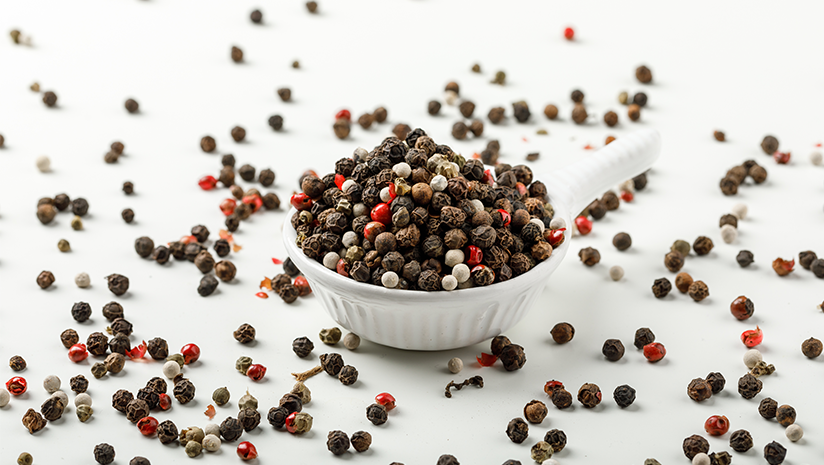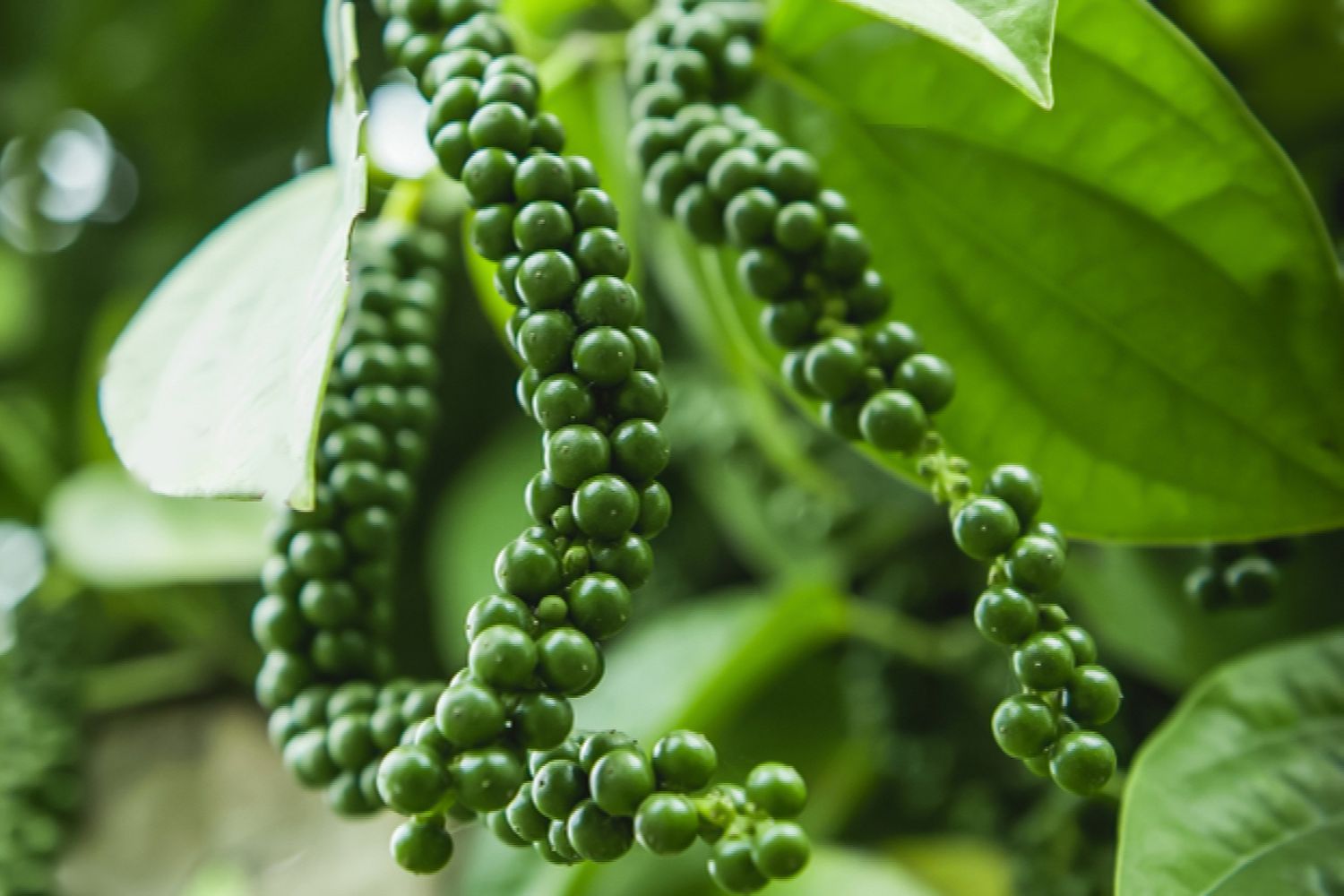When it comes to spicing up our culinary creations, black pepper often takes the lead. Its bold, pungent flavor is a familiar presence in kitchens around the world. Yet, tucked away within the same peppercorn lies its lesser-known cousin, white pepper, offering a subtly different taste profile and a range of culinary possibilities.
Unveiling White Pepper
White pepper, like black pepper, is derived from the berries of the Piper nigrum vine, native to South India. The key difference lies in the processing method. While black pepper is made from dried, unripe green peppercorns, white pepper is crafted from the ripe, red berries.
The berries are soaked to remove the outer fleshy layer, revealing the inner seed. These seeds are then dried, resulting in the creation of white pepper. This unique processing method contributes to white pepper’s distinct flavor and appearance.
Flavor Profile and Aroma
White pepper is often described as having a milder, less pungent flavor compared to its black counterpart. It offers a subtle heat that gradually builds, allowing other flavors in a dish to shine through. Its taste is earthy, with hints of fermented fruit and a slightly floral aroma.

Culinary Versatility
White pepper’s subtle heat and delicate flavor make it an ideal choice for dishes where you want to add a peppery kick without overpowering the other ingredients. Here are some culinary uses for white pepper:
- Creamy Sauces: White pepper is a staple in creamy sauces, such as Alfredo or béchamel. Its mild heat enhances the sauce’s flavor without disrupting its smooth texture.
- Light-Colored Dishes: White pepper is often preferred in dishes with light-colored sauces or soups, as it doesn’t introduce the dark specks that black pepper would.
- Seafood: Its delicate flavor pairs well with seafood, allowing the natural taste of the fish or shellfish to shine through.
- Asian Cuisine: White pepper is a common ingredient in Asian cuisine, especially Chinese and Thai dishes. It is used in stir-fries, soups, and marinades to add a subtle peppery note.
Health Benefits
Beyond its culinary uses, white pepper is believed to offer some health benefits. It contains a compound called piperine, which is thought to have antioxidant properties and potential anti-inflammatory effects. Some traditional medicine practices use white pepper to aid digestion and alleviate certain respiratory conditions.
Exploring White Pepper
White pepper can be found in various forms, including whole peppercorns, ground pepper, and even as part of spice blends. When using white pepper, it’s essential to store it in an airtight container away from direct light to preserve its delicate flavor.

Experimenting with white pepper in your dishes can introduce a new layer of complexity and depth to your culinary creations. Its subtlety makes it an excellent choice for those seeking to balance flavors and elevate their cooking to the next level.
White pepper may not be as flashy or assertive as its black counterpart, but it has a charm and versatility all its own. Its mild heat and delicate flavor make it an excellent addition to a wide range of dishes, from creamy sauces to seafood and Asian cuisine. Whether you’re a seasoned chef or a home cook looking to expand your culinary horizons, don’t underestimate the culinary potential of white pepper—it’s a spice with surprising depth waiting to be explored.


